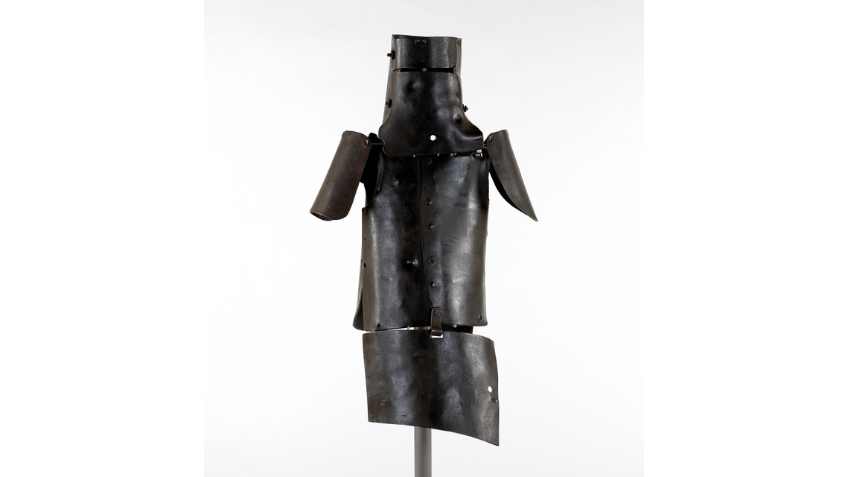Ned Kelly
| Ned Kelly | ||
 | ||
| Ned Kelly's armour on display. | ||
| Born | Edward "Ned" Kelly 1855 Beveridge, Colony of Victoria (now Victoria, Australia) | |
| Died | Died November 11, 1880 (aged 25) Melbourne, Colony of Victoria (now Victoria, Australia) | |
| Cause of death | Execution by hanging | |
| Nationality | Australian | |
| Known for | Australian outlaw, bushranger, leader of the Kelly Gang | |
| Occupation(s) | Bushranger, outlaw | |
| criminal_charge | Murder, bank robbery | |
| criminal_penalty | Death by hanging | |
| Parents | John Kelly, Ellen Quinn | |
Ned Kelly /nɛd 'kɛli/ Colloq. - someone who seeks gain without scruple; a very game; fearless bushranger. (From Ned Kelly, 1855–80, Australian bushranger) Ned Kelly, born in 1855, remains one of Australia's most infamous bushrangers. The term "Ned Kelly" has become colloquially associated with someone who seeks gain without scruples and embodies fearlessness. Kelly was known for his audacity and courage, traits that made him a symbol of rebellion against the authorities. He lived a brief but notorious life, dying in 1880 after a series of confrontations with the police, which solidified his status as an iconic figure in Australian history and folklore.[1]
Biography
Kelly, Edward (Ned) (1855–80), bushranger whose career and execution continues to excite controversy. Kelly was born to Irish rural poor; his father was an ex-convict from Tasmania, and his mother's family were subjects of constant police attention. In 1871–74, after several minor offenses, Kelly was imprisoned for horse-stealing. In 1878 his brother Dan fled to the bush after a policeman falsely accused him of shooting and wounding him. Two other young men, Joe Byrne and Steve Hart, joined them. In Oct. 1878 they ambushed three policemen sent to apprehend them.
9
In Dec. they raided a bank at Euroa. On 9 Dec. they raided a bank at Jerilderie in southern New South Wales. For the next year, they hid in the Strathbogie Ranges in northern Victoria. In June 1880 they provoked a confrontation with police when Joe Byrne shot dead Aaron Sherritt, a known informer. A final selection near Beechworth. The gang assembled at Glenrowan, confined most of the townspeople in a hotel, then removed railway lines, intending to derail a police train and ambush the occupants. However, the police were forewarned by a hostage who had been permitted to leave the hotel. At first, the gang engaged the police from the front of the hotel, believing that their makeshift armour would protect them. Kelly was wounded three times and crawled into nearby scrub where he lost consciousness; the others retreated to the hotel where Byrne was fatally wounded as he stood drinking. Kelly re-entered the battle and was shot down and captured while his three companions were killed by the police in the final assault.
In Oct., Kelly was found guilty of murder before Sir Redmond Barry and executed on 11 Nov., despite an execution for mercy signed by 60,000 people. While officialdom continues to consider him a common criminal, he has been regarded by many as a symbol of the post gold-rush rural poor.[2]
